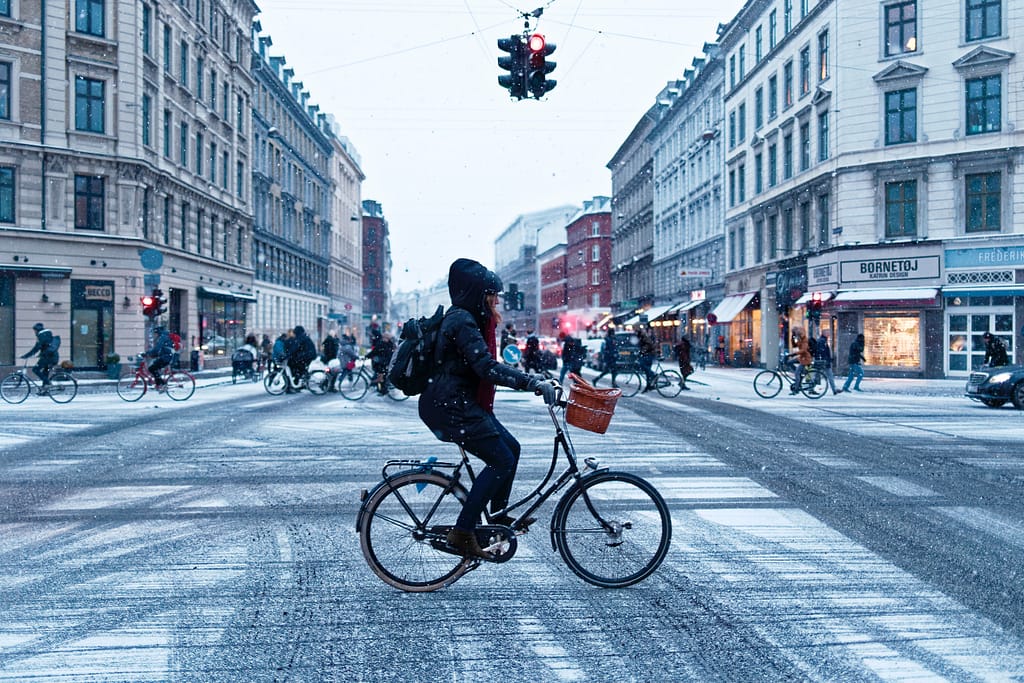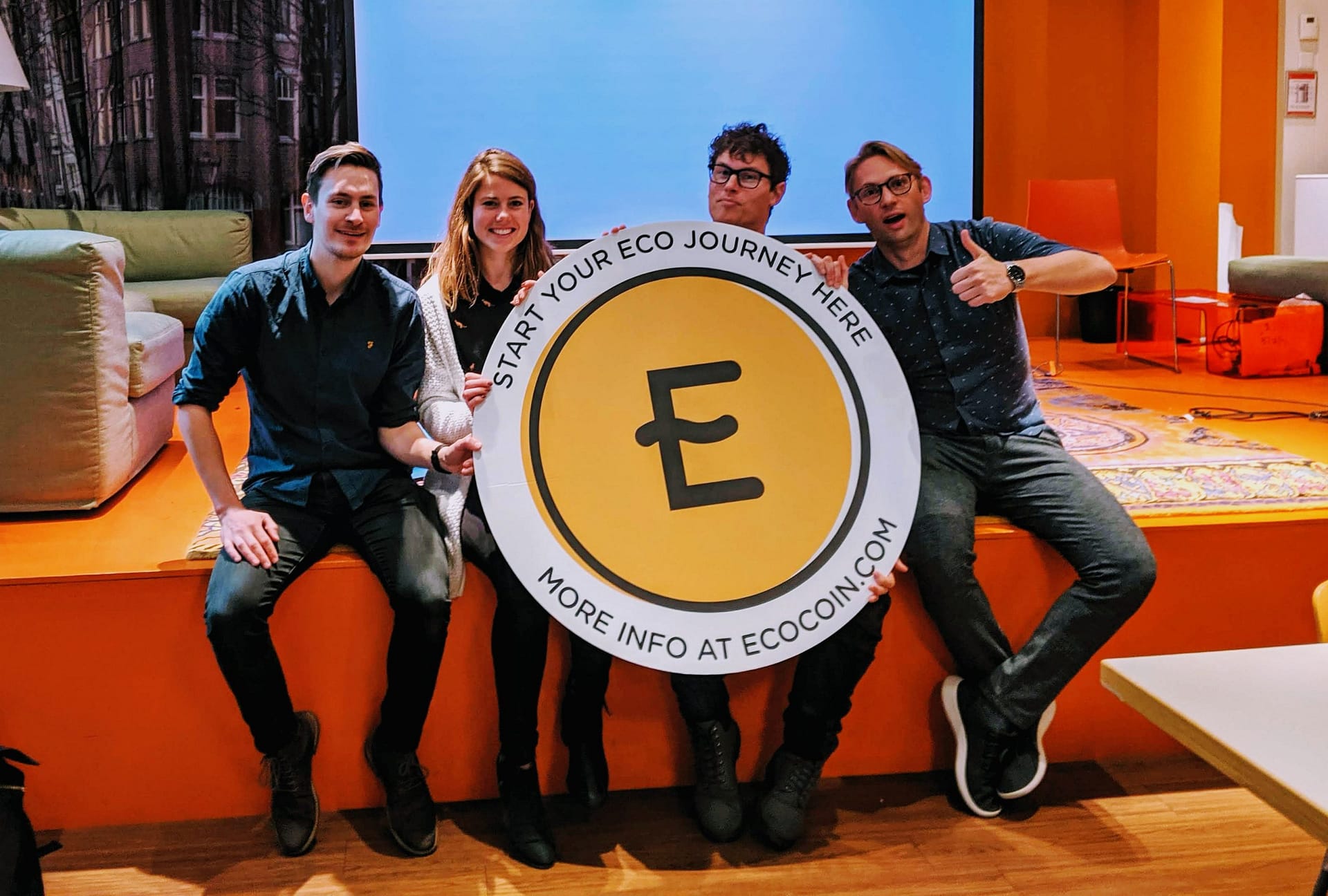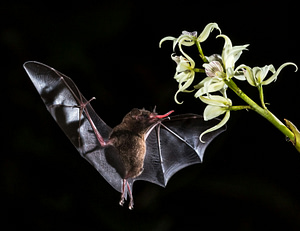What holds value in our society? When a tree is cut down for wood, it’s possible to earn good money. Whereas when a tree is planted value is created, but the pay isn’t great. To measure value beyond traditional monetary means, ECO-coin encourages companies, organizations and festivals to reward sustainable and environmental behavior.
Throughout the Dutch Week of the Circular Economy, we are shining a spotlight on inspiring sustainable initiatives in the Netherlands. Joining forces with startups, social entrepreneurs, creative professionals, leading companies, and forward-thinking governments, to showcase what a circular economy can look like. Meet the pioneers, learn from them and get inspired!
This interview by the City of Amsterdam is with Lewis Just from ECO coin, who aims for nothing less than the creation of an alternative value system, a sustainable currency for planet earth.
How did you become involved with the ECO coin?
The ECO coin emerged from a workshop in Brazil led by Next Nature Network . The group noticed an imbalance within our economic and ecological system: people could get money from cutting down a tree, but no one was actually paying them to grow or protect the forest. What if we paid people for their sustainable actions and rewarded them to protect or grow the ecological surroundings, instead of the other way around? Next Nature Network took this idea back to Amsterdam to further develop it. Here my personal story comes in: I’ve always been fascinated by both community currencies and the rise of cryptocurrencies. I’m originally from Scotland and had been working in London for a while, but missed a sense of real impact in my day-to-day job. So I moved to Amsterdam on a whim in 2016, and had the opportunity to start working on evolving the ECO coin from an idea to a business of its own.
What is the ECO coin?
It is a digital currency earned through sustainable actions. There are different sustainable actions that you can do to earn ECO coins, which are customized depending on the context or organization we are working with. These range from eating a meat- free meal to recycling plastic bottles or taking the bike instead of the car. Each action is priced in ECO coins. The more impact the action has, the more ECO coins you get. Once you’ve earned your ECOs they can then be spent on sustainable services, exclusive experiences and circular products.
The first time the ECO coin was earned and spent was at DGTL festival. That was quite exciting because we’d just started to formalize the concept, and then suddenly had only eight weeks to build the entire system as a digital platform.

How do you determine the value of an action?
We calculate the impact and translate it into one value: CO2e (the “e” standing for equivalent). For example, we can calculate the difference between a veggie meal versus a meal with meat and calculate the avoided CO2-emissions. It’s still generalized, but we’re trying to go further by integrating data that is out there anyways – such as the exact distance you’re biking. The more information we have, the more we can steer people a certain way by showing them the options and related impact. Although it’s really based on the idea of using certain types of data, we’ve always been very aware of privacy issues and are explicit on what part of someone’s data we use.
How do you measure your own impact on the circular economy?
We’ve done seven implementations so far, ranging from large corporates such as booking.com and L’Oréal to organizations like Erasmus University Rotterdam and the City of Amsterdam. We calculate our impact mainly in terms of avoided CO2e per month, monitoring the amount of actions carried out. For instance, at the municipality we reduced 10 tons of CO2e per month with only 150 people carrying out more than 5000 actions. For every action chosen over another action, we are also able to calculate savings in water reduction, energy, and waste. It’s a huge win that companies like booking.com are wanting to collaborate, and apparently value sustainability so much that they want to incentivize their employees to act more sustainably. These companies often have global supply chains and so massive potential for impact. We always conduct an analysis of an organization before and after implementing the ECO coin, and these almost always show that mindsets have actually shifted. Circular thinking has often really gotten into the DNA of the company. What’s more, even though we focus on working life, the project often leads to attitude change that is also reflected in people’s private life.

Can you tell us more about the reward system?
We believe that the currency should be 50% about ecological value and 50% economic value. People fall for different triggers. One thing that really motivates people is being able to see your personal impact in terms of CO2e, by checking your digital ‘wallet’. You can then spend these ECO coins on all kinds of rewards, ranging from a free coffee or cinema tickets to bike services to exclusive meet and greets. We try to make sure these are as sustainable as possible, for example by looking at partners with excess capacity (such as movie theaters). We’ve now also made it possible to donate your ECO coins, or to spend them on community items like solar panels or plants for your office. It’s always green for green: you earn in a green way and you spend in a green way.
What’s been your favorite case so far?
We had some really great results from the L’Oréal implementation. We did a pilot for them last year. It was fascinating because it was the first time we’ve gone so deep into corporate culture. I think it worked so well because there was already a very competitive atmosphere; they have several divisions, and are always competing with each other. We played into that and grouped the leaderboards per division. That led to really high engagement. You could feel a buzz throughout the whole building, people joking at the coffee machines like ‘oh, how many do you have? I’m buying my coffee today with ECO coins’.
What would you recommend starters wanting to set up a sustainability-related company?
Go and connect with all of the amazing initiatives already out there and figure out where you fit within the bigger ecosystem. Transitioning to the circular economy is about joining multiple things up. You can’t work as an isolated company. It’s what I love about working in this field: traditional startups are constantly competing against each other, but as soon as you step into the sustainability world, everyone’s working towards the same goal and it can only be helpful to work together. It gives you a lot of energy.
This interview series is a collaborative initiative of Metabolic, AMS Institute, City of Amsterdam, the Amsterdam Economic Board and Amsterdam Smart City. Working together within the Amsterdam Smart City platform, these organisations are committed to accelerate the transition to a circular economy.






